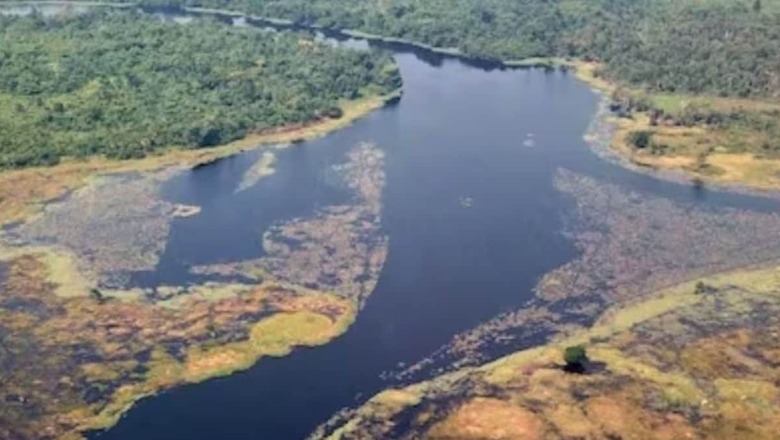
views
Water, the most abundant resource on Earth, makes up a major part of all living organisms and covers nearly three-quarters of the planet’s surface. However, rivers are lifelines for freshwater ecosystems for humans and nature to survive. But have you ever wondered how much water is in the world’s rivers? Recently, the National Aeronautics and Space Administration (NASA) conducted a study that explored the flow and storage of water in the Earth’s rivers, highlighting areas facing significant water stress.
This research, published in Nature Geoscience, involved the analysis of nearly 3 million river segments worldwide. By employing extensive stream-gauge measurements and a combination of advanced computational models, the researchers from NASA’s Jet Propulsion Laboratory (JPL) in Southern California blended flow metre data with computer models and analysed over 3 million river segments. It has uncovered significant data about the quantity of water flowing through Earth’s rivers, the rate at which this water flows into oceans, and how these metrics fluctuate over time more accurately than ever before.
The study estimated that the total volume of water in Earth’s rivers averaged 539 cubic miles (2,246 cubic kilometres) between 1980 and 2009. This data is equivalent to half the water in Lake Michigan and roughly 0,006 per cent of all freshwater resources, which itself makes up only 2.5 per cent of the planet’s total water volume. Despite their small proportion, rivers are a minor yet critical component of Earth’s hydrosphere, essential for managing the global water cycle.
A co-author of the study, Cedric David, highlighted the importance of accurately evaluating river water volumes. He compared the current situation to spending money from a checking account without knowing the balance, stressing that understanding the actual volume of river water is foundational for effective water resource management, especially amid climate change and growing population pressures.
The study also found that the Amazon Basin discharges the most water into the oceans. It accounts for 18 per cent of total river outflow into oceans, with 6,789 cubic kilometres annually. This basin is the world’s largest river storage basin by volume, holding approximately 850 cubic kilometres of water and representing 38 per cent of the global river water storage.
Moreover, the study also discovered segments of rivers where more water enters than exits, like those in the Amazon, Orange and Colorado River basins, indicating intense human water use. This phenomenon indicates human impact, which can lead to environmental stress and reduced water availability.




















Comments
0 comment